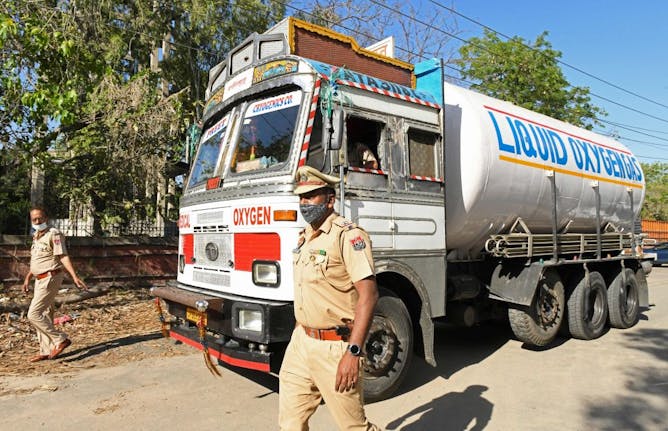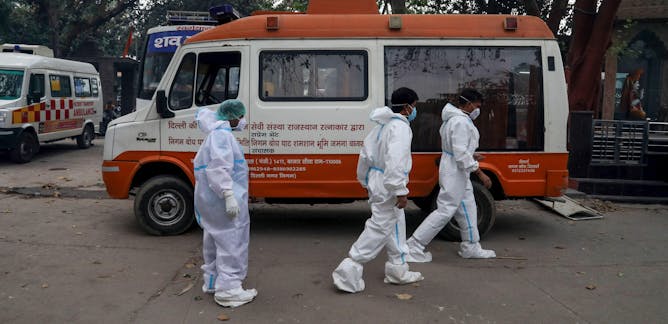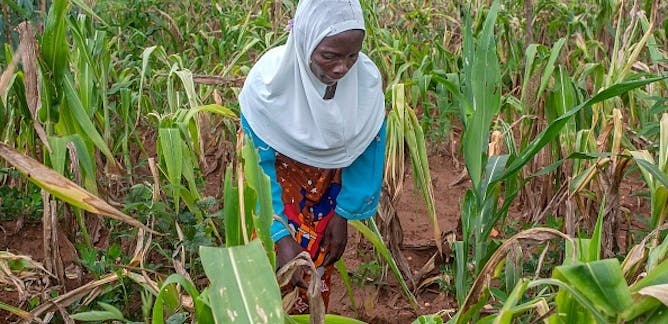
Police personnel escort a truck carrying medical liquid oxygen to the Guru Nanak Dev hospital in Amritsar, India, on April 24, 2021.
Photo by NARINDER NANU/AFP via Getty Images
Trevor Duke, The University of Melbourne
For now, governments and health services should invest in bedside oxygen concentrators and oxygen generators to supply whole hospital needs.
|
Health + Medicine
|

Michael Head, University of Southampton
Stories of reaching herd immunity were certainly premature.
| |

Veenu Manoharan, Cardiff Metropolitan University
There are many reasons your immune system might react differently to vaccines.
|
|
|
Politics + Society
|

Christopher Holliday, King's College London
Released in 2001, it was the first film to really give Pixar a run for its money.
| |

Folahanmi Aina, King's College London
Chadian president Idriss Deby's death has serious implications for stability in the troubled Lake Chad Basin and the broader Sahel region of West Africa.
|
|
|
Business + Economy
|

Amitrajeet A. Batabyal, Rochester Institute of Technology
If China's economy recovers from the pandemic, its authoritarian political system could become even more influential around the world.
| |

Dieter von Fintel, Stellenbosch University; Anja Smith, Stellenbosch University; Francesca Marchetta, Université Clermont Auvergne (UCA); Martin Limbikani Mwale, Stellenbosch University
Malawi's revamped subsidy regime is designed to reach many more farmers. But a granular look shows that women aren't reaping the benefits.
|
|
|